Indigenous elder wants woke city mobs to ‘come and see what it is really like’
Elders in rural Aboriginal communities say city-based groups who want the date of Australia Day changed have no idea what life is really like for them.
NSW
Don't miss out on the headlines from NSW. Followed categories will be added to My News.
It’s the secret suffering that those in the big cities are oblivious to — the plight of the Indigenous in rural NSW.
According to elders, city dwellers have no idea of the poverty and substance abuse wreaking havoc on Aboriginal communities across outback NSW.
“They don’t realise what’s out here, you’ve got to be out here and see it,” Peter Knight, 69, told The Daily Telegraph this week in blistering 41C heat on the front porch of his home at Bourke, 750km northwest of Sydney.
“Come out and have a look … they’ll see a place that really needs help.”
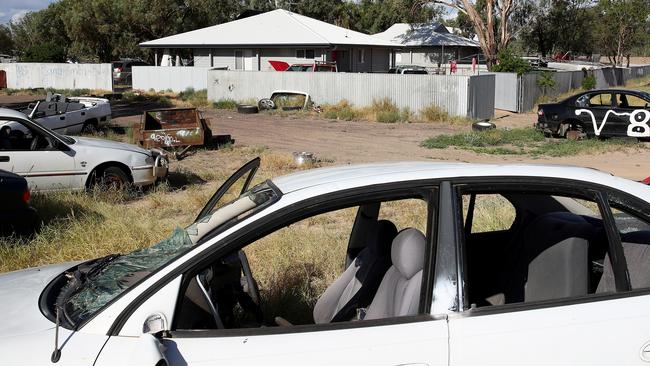
Built on the banks of the mighty Darling River and once a thriving inland port, Bourke has been plagued for years by a vicious cycle of entrenched unemployment and alcoholism.
And these scourges are in full view on the far western fringes of the town in Alice Edwards Village, a tight-knit Aboriginal community located on the site of a former reserve. At 9am, The Daily Telegraph saw a man down the last remnants of a bottle of Jim Beam whiskey in one swig before hopping on to a bus for a ride that usually takes residents into town to work for the dole.
Alice Edwards is littered with rusting car wrecks, discarded household appliances and shards of glass which young children and dogs dart in-between while playing.
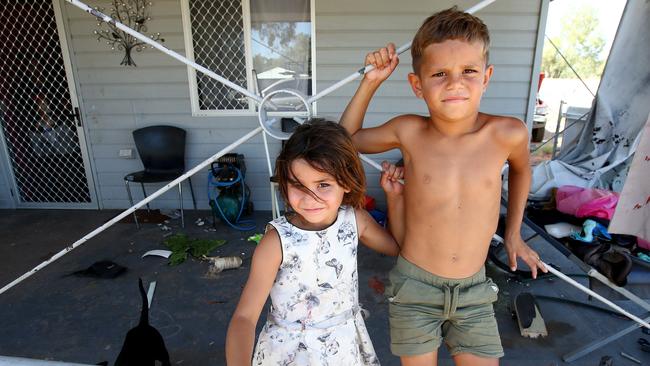
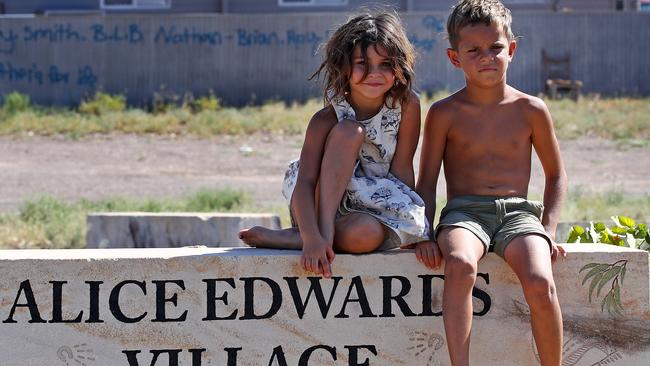
Zamiah Knight, who lives in the village with her kids Andre, 7, Unique, 6, and Jaydyn, 3, said she felt cut off from Bourke’s centre, where 30 per cent of the town’s 2600 residents are Indigenous.
“We don’t get involved with the things from uptown because we don’t get told about it,“ she said.
“A lot of people down here, they don’t do internet, they don’t have phones and they don’t communicate with radio or anything like that, so we don’t know what’s going on uptown.
“Most of them don’t have a licence down here either.”
June Smith, 72, the daughter of Alice Edwards from whom the village takes its name, said she was worried about drug abuse and wanted a meeting with all of Bourke’s residents to be called to try to come up with a solution.
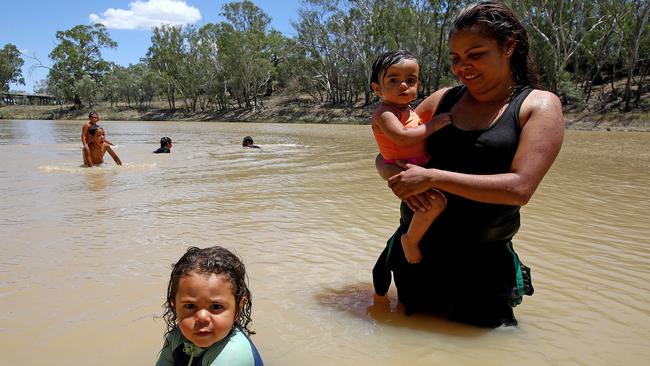
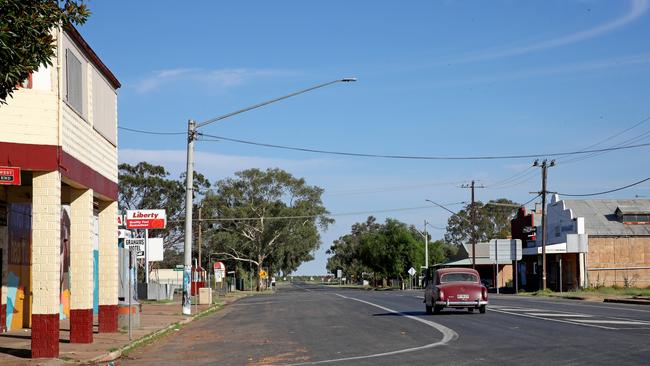
“I love it down here because it’s always peaceful and quiet … but there’s only one thing wrong – the people that bring in the drugs, that’s the thing,“ she said.
“I hate drugs because what if the kids get it?
“There’s a lot of bad stuff going around; it could kill (the) kids.”
Elder Kevin Knight said he had heard stories of some men taking advantage of young women by offering them drugs in the town.
But despite the lack of resources, the community is filled with happy and loving families. Further west, past red dirt country, is Wilcannia — a town of 500 where some recommend not to stop when driving through.
The main street pub’s windows have been sealed over with brick and nobody is allowed in there after 8pm when only light beer is served.
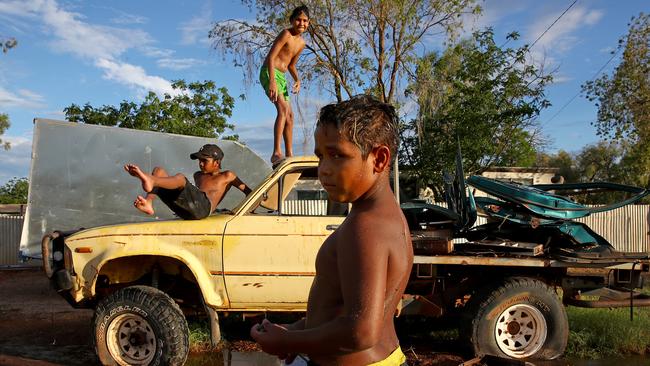
Sissy King, a well-known Aboriginal elder in the town, told the Telegraph that people protesting in Sydney over Australia Day recently were out of touch with the troubles faced by the outback mobs.
“I don’t think the date should be changed because it was a date that was set for all Australians … black, white, brown, yellow, all colours,” she said.
“(There’s) city people chanting, singing out to that but at the end of the day, what it’s doing is having our own attack one another.
“We need to stop the division that’s always hurt us.
“(Come and) get on the ground in the dirt, talk with us, come out here and have the time with us.
“(People from the city) need to get out and see what we don’t have that they do have, come and see what it’s like. We can’t buy anything after 7pm.
“If I run out of milk then that’s it, I’ve got no milk until tomorrow morning.”
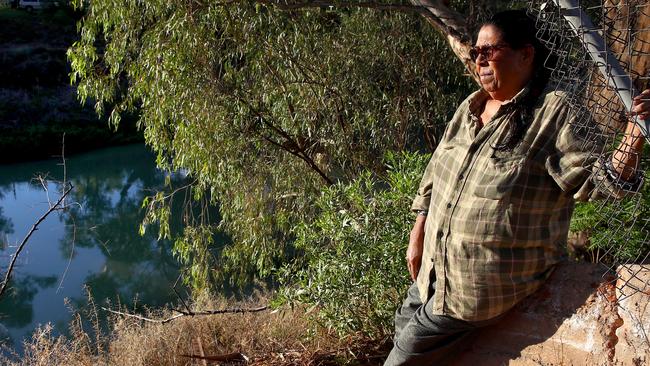
One grassroots organisation determined to reverse the disadvantage in outback NSW is the Bourke-based Maranguka Community Hub, spearheaded by Alistair Ferguson, who said people in cities had an advantage because they were closer to government ears.
“(In the outback) when we look at three generations that haven’t had employment, I think that’s probably an indicator, in spite of efforts trying to stimulate and capture the imagination to give us a fairer go,” he said.
More Coverage
Originally published as Indigenous elder wants woke city mobs to ‘come and see what it is really like’





